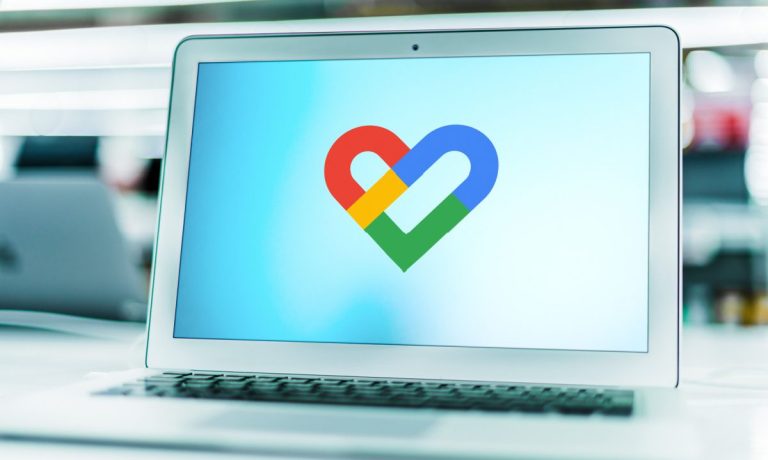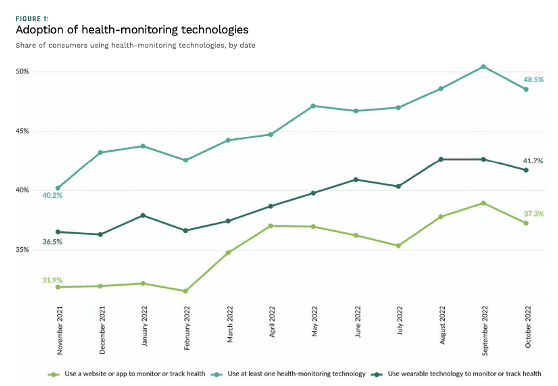Google Health Looks to Consumerize AI With Chat and Wearables

Continuing its push for artificial intelligence (AI) in healthcare use cases from search to symptom tracking and treatment, Google announced progress along these lines at its annual Check Up event on Tuesday (March 14).
Google Chief Health Officer Karen DeSalvo told attendees that “The future of health is consumer driven. People will expect a mobile-first experience with more personalized insights, services, and care. That means enterprises including Google will need to evolve to meet consumers where they are.”
DeSalvo and others laid out progress the company is making in the digital transformation of healthcare, including the use of Large Language Models (LLM) to automate diagnostics, while also teasing forthcoming developments in making the Android-based Fitbit wearables more accurate and accessible.
In a blog post coinciding with the event, DeSalvo said consumers want to take a more active role in monitoring their own health conditions with wearables. She wrote, “Later this month we will make more of Fitbit’s Health Metrics Dashboard feature available without a subscription to people using Fitbit with compatible devices in countries where the feature is available.”
DeSalvo said the Health Metrics Dashboard “helps you uncover changes and trends in your breathing rate, skin temperature, blood oxygen, and more. With this update, you will be able to see trends over longer periods of time and get at-a-glance insights about what metrics changed from their baseline.”
See also: Google to Integrate Fitbit Accounts in Connected Health Push
Sleep tracking is a key application of Fitbit wearables, which, when connected to Pixel Watch and Nest Hub (2nd gen), now creates a “sleep profile” for users based on two weeks of data collected from the individual wearing the devices, “so it can recognize things that commonly happen while you sleep and give you a more holistic analysis of your sleep behavior over time,” according to Dr. Conor Heneghan, a research scientist who works on sleep health applications of Google consumer hardware.
In September, Google unveiled Device Connect for Fitbit, saying in a blog at the time that the new connected suite provides users “with control over what data they choose to share and ensuring secure data storage and protection. Unlocking actionable insights about patients can help support management of chronic conditions, help drive population health impact, and advance clinical research to help transform lives. With this solution, healthcare organizations will be increasingly able to gain a more holistic view of their patients outside of clinical care settings.”

The study “Connected Wellness: Tracking The Rise Of Health-Tracking Technology,” a PYMNTS and CareCredit collaboration, found that “96.5 million consumers used a device, app or website to track their health or vitals at least once in October 2022, and more are beginning to try such devices every day. The use of health-tracking technologies has grown by 21%, a projected 21 million more U.S. consumers, since November 2021.”
Health AIs Getting Smarter and Chattier
Moving on to the firm’s latest work in healthcare AI, Google VP of Engineering and Research Yossi Matias discussed progress in large language models (LLMs), AI tools that demonstrate capabilities in language understanding and generation, with applications for Google search as well as in clinical settings where AI can help treat more patients with greater accuracy.
Pathways Language Model (PaLM) is Google’s large language model, in some ways akin to the chatGPT AI that’s dominated headlines in recent months, and DeSalvo’s team discussed progress in the Med-PaLM it introduced in 2022. “Our next iteration, Med-PaLM 2, consistently performed at an ‘expert’ doctor level on medical exam questions, scoring 85%. This is an 18% improvement from Med-PaLM’s previous performance and far surpasses similar AI models,” Google said in a blog published during the event.
Read: Google’s New Focus on AI Includes $300M Anthropic Investment
While the AIs that can accurately answer complex medical questions are showing promise and are most likely destined to appear as a Google search feature shortly, Google said “we found significant gaps when it comes to answering medical questions and meeting our product excellence standards. We look forward to working with researchers and the global medical community to close these gaps and understand how this technology can help improve health delivery.”